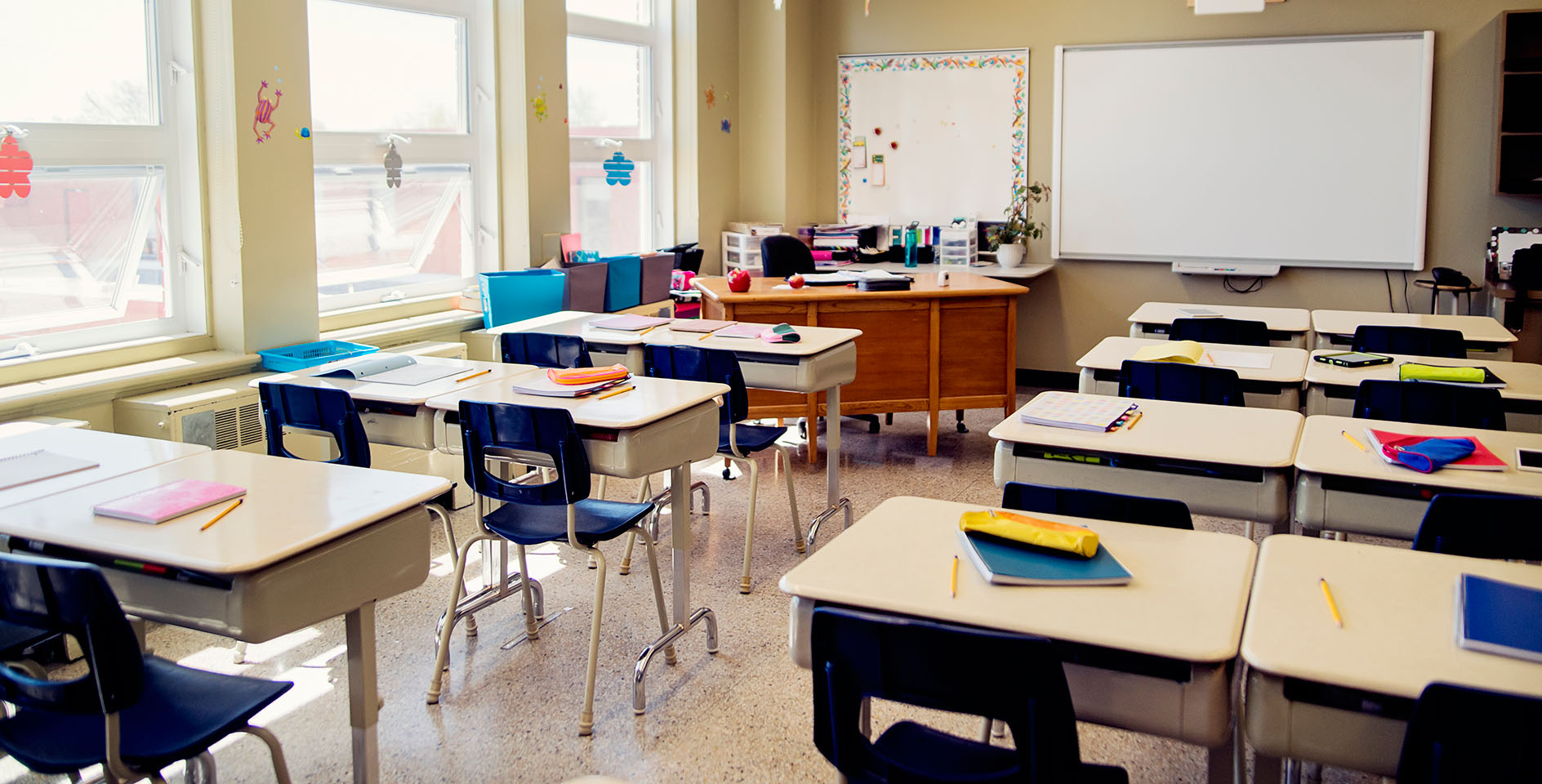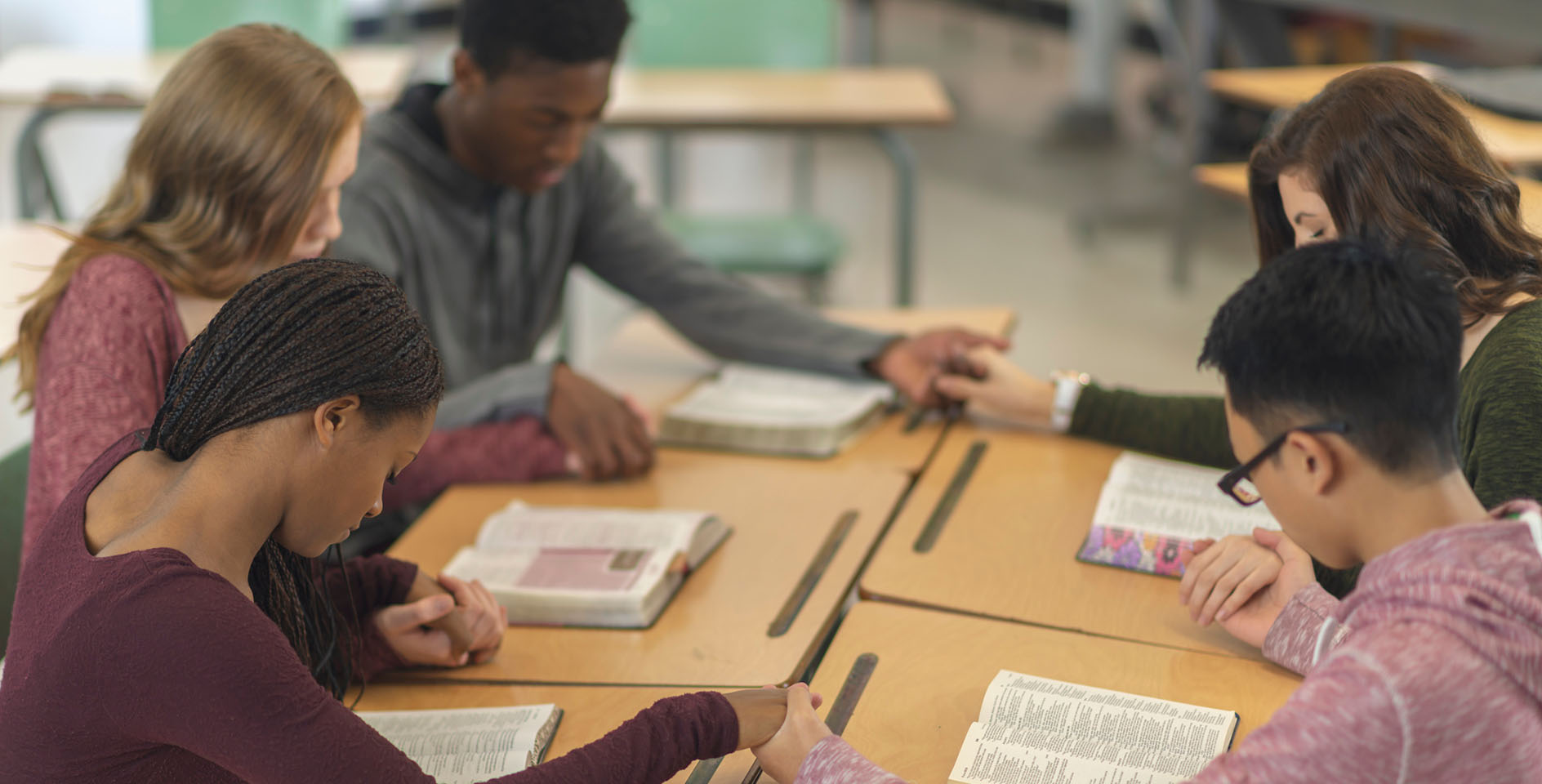Choosing a school for your children can be one of the most difficult decisions that a parent makes. Our family’s choice was complicated by our kids’ particular needs. My wife Megan and I are deliberate people, and after taking some time to consider our options, we sent our oldest daughter, Rachael, to a two-day-per-week kindergarten at a classical school, one that we knew would emphasize reading old books, choral music, and learning ancient languages like Latin and Greek. The school was a great fit for her; she seemed to thrive.
But that same year, our second-born, Lucy, began her academic journey at a half-day Head Start program. Lucy had been diagnosed with what would now be classified as level 3 Autism. Her language, social, and self-care skills were already behind her 3-year-old peers, and she needed the behavioral, speech, and occupational support that our local public school system could provide.
Choosing two different schools seemed like a wise decision at first. The two schools felt like just the right fit for our two daughters. But living in two different educational worlds at once was more difficult than we anticipated. Not only were our girls’ weekly schedules radically different, but the school calendars — the holidays, as well as the start and end dates for the two school systems — just didn’t mesh. Lucy also had daily therapy sessions after school in our home. Even if one child was on a break, another still had something going on. We felt like we were always on the go. In many ways, that was our first rodeo as parents, and Megan and I were exhausted trying to manage it.
So, as the summer drew near, we pulled both girls out of their schools, went to Disney World with my in-laws (we found that restful!), and began a process of making certain that both girls would have the same school schedule the following fall. Our Lucy needed the public school system’s support for children with disabilities. So in order to unite our family around a shared routine (and actually enjoy family vacations!), we put both girls in public education.
A battle for minds and affections
Choosing public school is not a decision that any Christian parent should come to blindly. Megan and I sat down with a friend and advisor who walked us through a process of identifying our values, ranking them, and then finally making the decision.
One thing that made the decision so hard is the reality that public education isn’t designed to reinforce Christian values. As James K. A. Smith has chronicled in his book Desiring the Kingdom, the rhythms of the public school and university campus are aimed instead at forming the next generation to value and worship competition, radical self-expression, and economic success.
And it’s not only that the secular worldview heralded in the public school curriculum seeks to regularly undercut a Christian worldview. Whether your kids attend a Christian school or a public one, the passion and regular rhythms of middle and high school extracurriculars —whether it’s athletics, academics, or the arts — will compete for your kids’ affections.
Smith quotes Duke Divinity school professor Stanley Hauerwas’s striking observation that “Friday night high school football is the most significant liturgical event in Texas.” Now don’t get me wrong. I stand up and cheer for each touchdown pass as loudly as the next man (okay, maybe louder). Football, along with other sports, is a gracious gift from God, but that doesn’t mean Smith and Hauerwas are wrong when they see games and competitions as acts of worship that can compete with the faith.
What makes this even harder in the public school context is that most public schools no longer take church activities into account. Gone are the days when sports and activities take a midweek pause so that students can be involved at their church on Wednesday evening. And when the band competition ends late on Saturday night, it’s hard to get up for church on Sunday morning.
Why let Caesar educate your kids?
We know that young people are susceptible to the influence of their peers and cultural environment. So, if the public school environment is so hostile to Christian belief, why would any parent choose it? Why let Caesar educate your kids?
The truth is that without some vision for what it will take to navigate public school culture as a Christian, it’s unwise to make that choice. Ultimately, I believe that a Christian’s school choice is a Romans 14 matter — an issue of Christian freedom that will be worked out as each mom and dad weighs the options in light of their individual consciences. There are great reasons to choose a Christian school environment instead, but I believe there are also some opportunities that public education uniquely offers to Christian families. Here are three:
1. In public school, students typically experience greater diversity. After the 1954 Brown v. Board of Education decision, many conservative white churches became bastions for segregationist opposition. Especially in the South, a number of private schools were founded by people who were committed to segregation and opposed to any possibility of interracial romance. As Michael Aitcheson observed on The Gospel Coalition’s As In Heaven podcast, “My grandmother in Orlando, Florida, remembers integration happening and our first private school was founded ‘six hours later.’”
Though they began as “segregation academies,” many of these schools have turned from their segregationist practices, and there are even efforts within Christian education to prioritize greater diversity. But on the whole, public education remains much more diverse than private education, and this presents lots of little opportunities for Christian kids to learn how to respect cultural differences and engage peers who differ with friendly curiosity rather than suspicion.
Public school exposes our children to ethnic and racial diversity, socioeconomic diversity, religious diversity, and ability diversity. It’s good to hear in a sermon about how we should honor the dignity of every human person made in God’s image. But the student in public school also gets the opportunity to practice showing honor when splitting a pizza with her Hindu friends.
2. In public school, kids encounter pressing issues before they leave home. Christian kids who attend a public high school today are going to hear a Christian account of creation questioned in science class. And that Christian student probably knows at least one person in their classes who identifies as lesbian, gay, or transgender. Theologian Michael Krueger observes that too often Christian parents think their kids are best served by being sheltered and protected from any discussion or exposure to such non-Christian thinking. But it shouldn’t be that way!
It’s good to help your child wrestle with how, for example, to square what the Bible teaches about gender with the empathy she feels for a friend who experiences gender dysphoria. We need to give young people the basic biblical categories and tools they need to deal with non-Chrisitan belief while they’re still living under our roof.
And just as it’s good for us to repent and ask for our children’s forgiveness when we lose our temper with them, it’s also good for parents to admit to their kids when they don’t know how to answer challenges to the Christian faith. When we’re honest about what we don’t know, kids will learn what it looks like to suspend judgement, do some research (pick up a book; ask a pastor), and think through how to give a reasonable defense for the faith.
3. In public school, Christian students have the opportunity to be a witness. Some Christians ask, “Why put your children on a school bus to Babylon? Here’s the reality: No matter how much you’ve sheltered your child, they’re still living in Babylon. The question is whether they’re merely assimilating or living as bold exiles.
On the one hand, it’s essential for students to have a Christian community beyond their nuclear families. Every Christian needs to know that he’s not alone. That’s one reason I’m so grateful for our church youth group that includes kids who are in public, private, and home school.
But if a young person is only around people who share his beliefs and, as a result, his faith is never tested during his growing up years, that youth may trade cultural conformity in a Christian environment for a more dangerous cultural conformity in his college dorm.
The public school environment certainly tests a young person’s faith. But when that faith is tested, there’s also an opportunity to see its true mettle. The student who chooses to dress modestly, not to participate in an event on Sunday, or share how her views of social justice involve convictions about hell and final judgment will be seen as socially awkward — perhaps even weird. She’s also a witness.
The biggest reason we chose public school in the first place was for the specialized care it provided for our daughter Lucy. Staying in public education has meant greater intentionality about teaching and modeling a biblical worldview to our daughters at home.
At the end of the day, a family’s educational choice for their kids is just one factor in a child’s formative years. In his book Shepherding a Child’s Heart, Tedd Tripp warns against the danger of evaluating your parenting by your child’s educational success. He wrote, “Unfortunately, scores of disillusioned and broken people are thoroughly educated. It is possible to be well-educated and still not understand life.” For the Christian parents who help their students learn to celebrate other image-bearers, work through doubt, and stand for Christ even when it seems strange, public school can be a pathway toward gaining a heart of wisdom.










